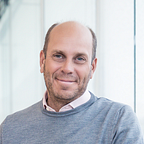Being a Doctoral Dropout — And Why I Returned After a Detour in Venture Capital
PhD dropouts are a headache for universities. But no dropout is the same, there’s a different story behind all individual decisions. This one is mine.
In late 2010, while at a family office, I identified a research gap that I thought was a key success factor for the industry. Armed with research enthusiasm and the knowledge that I had accumulated at the firm, and the analytics and writing skills that I had built during my years at Bloomberg, I started to skim universities that offered practice-oriented doctoral programs.
I paused at IE Business School, applied, and some five months later I received an email about my acceptance. Although I had requested for it myself, the acceptance note gave me a jolt. I had thrown myself into one of the biggest discomfort zones available. Classes on Calle de Maria de Molina would start next September.
Despite the jitters, I learned to enjoy every moment of being a doctoral student. IE put a strong effort into each of the twelve students who established my cohort, a diverse group of ambitious mid-career executives who wanted to put a ding in the universe.
But soon, the workload started to take its toll. At the threshold of doctoral candidacy, two years later, half of the cohort had been forced to drop out. It was a tough environment as colleagues from top consulting firms to Harvard Business School Baker Scholars struggled to balance the program with outside opportunities and pressures.
After completing the comprehensive exams, I started focusing my research question and hustling for data collection partners. Somewhat to my surprise, I managed to contract one of the big three management consultancies as partner. For a while, things proceeded beyond my wildest expectations. But respondent access turned out to be more difficult than what we had anticipated.
Eighteen months following my comps I was in my first crunch. I had a complete research proposal with a clear research question, a solid set of hypotheses together with an extensive literature review and a complete digital survey template. But despite a rockstar data collection partner, my plan was collapsing. I had a test result, a beautifully linear result that supported the main hypotheses. But the sample wasn’t large enough for an academic paper. It had just 45 firms while I needed at least a hundred. The situation turned alarming.
Meanwhile, my supportive advisor kept my spirits high by reminding me of the importance of my research question. It was, after all, expedited by one of the leading strategic management luminaries of our time. This gave me confidence that there was a real-world demand for my research so I kept pushing.
What’s more, I felt that the entire faculty at IE stood behind me. The school wasn’t afraid of supporting my original thesis although it ran against current practises. In fact, I believe they supported me because it did. To me, IE is one of the most sympathetic and change-loving business schools.
Although my research required primary data, last July my advisor handed me an existing database that could rescue my hypotheses. It was a long shot as we had to use proxies to distill the answers. Initially, it looked promising but after a few months of desk research I came to the conclusion that I couldn’t readily use the data for my original research questions. My dissertation was heading towards the valley of death.
In parallel with my thesis, another initiative within IE Business School started to compete with my doctoral ambitions. IE had begun to further emphasise its focus on entrepreneurship. More specifically technology startups. Already before my comprehensive exams, I had gotten myself involved with this ballooning project. Hot on the heels of the launch of Area 31, IE’s startup lab, I helped a Swedish crowdfunding initiative establish within IE.
And when it rains, it pours. While I was working on data collection together with the management consultancy, a leading Nordic venture capital firm approached me for co-investments and some nine months later I was called to join the firm as venture partner. While that wasn’t a full-time effort, joining them — and getting submerged in the European venture capital industry — didn’t make my thesis situation any better. Add another nail into my doctoral coffin.
In the twelve months to September, my research suffered so that I hardly made any concrete progress on my original research question. My attention was increasingly drawn towards early-stage investments, of which I had accumulated more than six. I was a de-facto doctoral dropout.
That said, my belief in the failed research question strengthened the more I spent time in the intersection of venture capital and entrepreneurship. Trans-generational family firms with a dispersed ownership base may regain their entrepreneurial DNA — and profits — by introducing a venture capital model, complete with general partners, limited partners and carried interest (matrix below). Such streamlining of decision making is in stark contrast with current practices where further governance is added through inertia-prone bodies such as family councils. To me, that is akin to curing hangover with more punch.
While I continued to drift further away from family firm research and closer to venture capital, I had unintentionally found myself in a situation where my research interests and professional ambitions again aligned. When studying European venture capital, I noticed that funding flow patterns at family offices differed markedly from those at other limited partners. I decided to take a chance, shift my research focus on venture capital, and consequently received a nod from both my advisor and the thesis committee. The new proposal was accepted in April.
Given that I didn’t have to change my advisor nor retake my comprehensive exams, the shift towards the new dissertation promises to be smooth despite deadline pressures. Most importantly, I’m now armed with an existing database. It’s good to be back at IE Business School.
